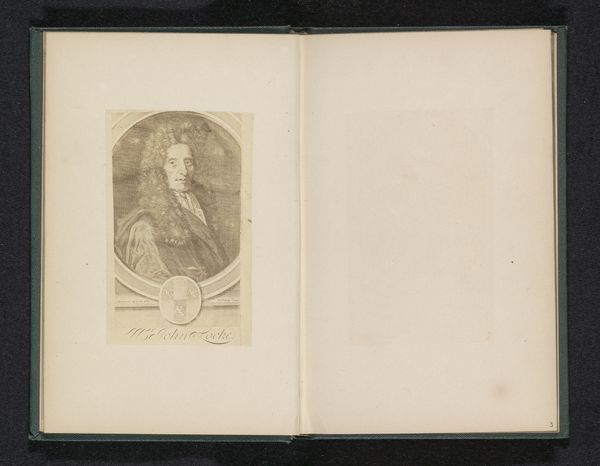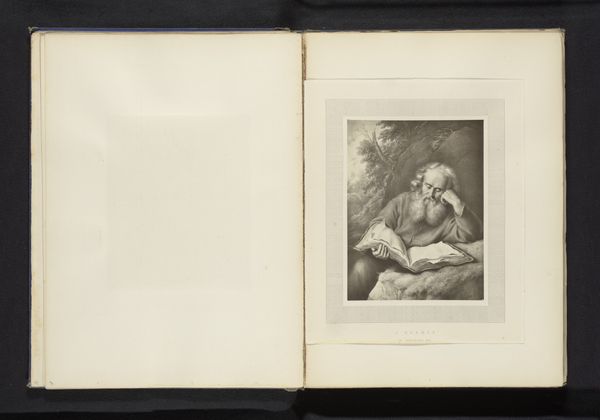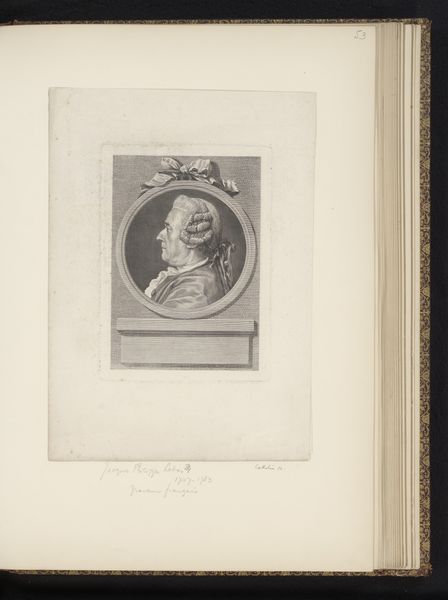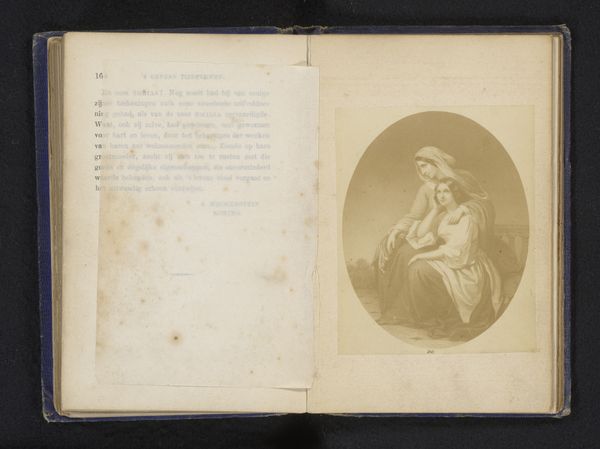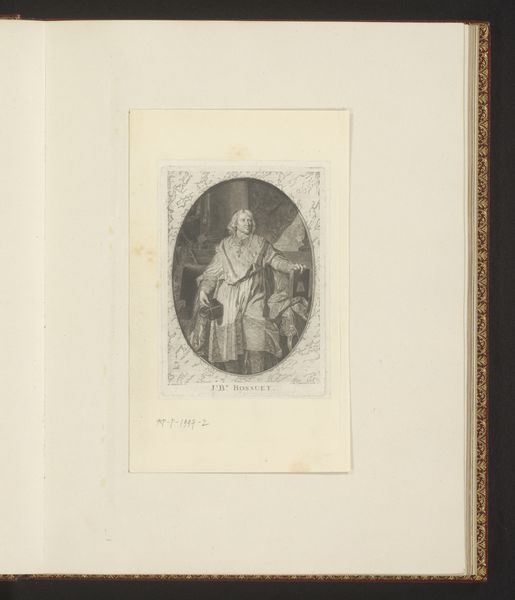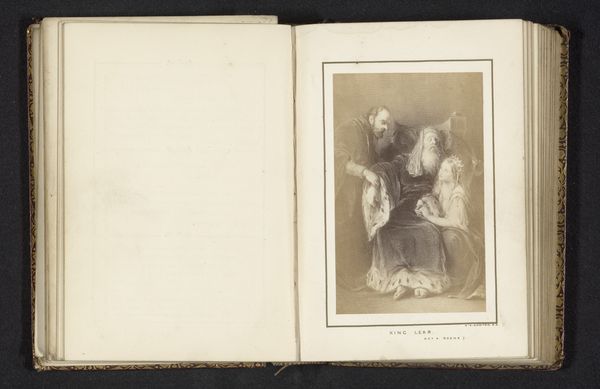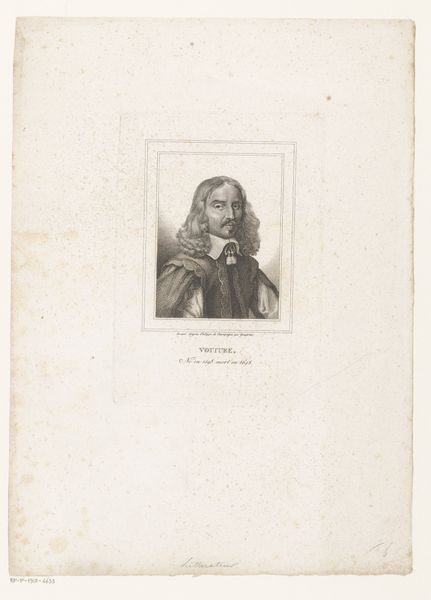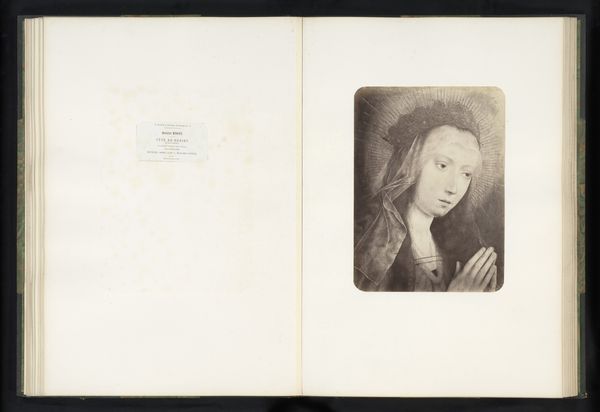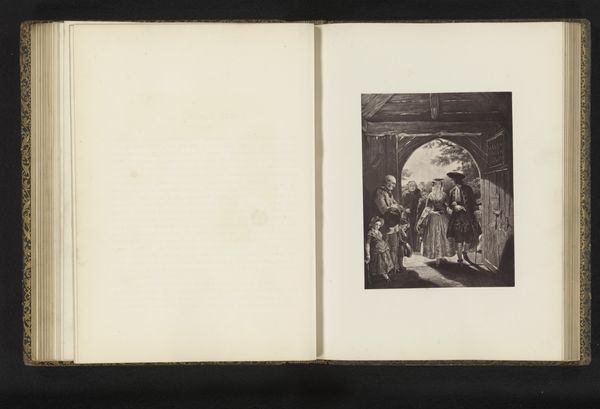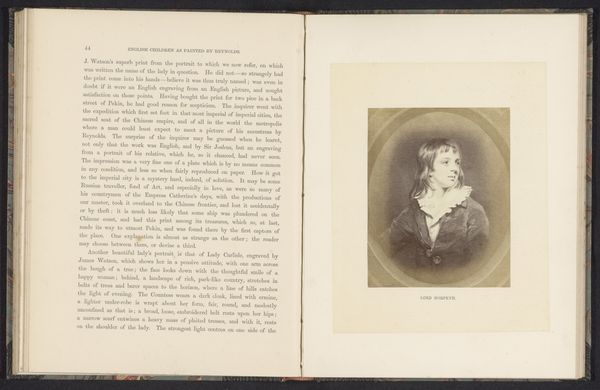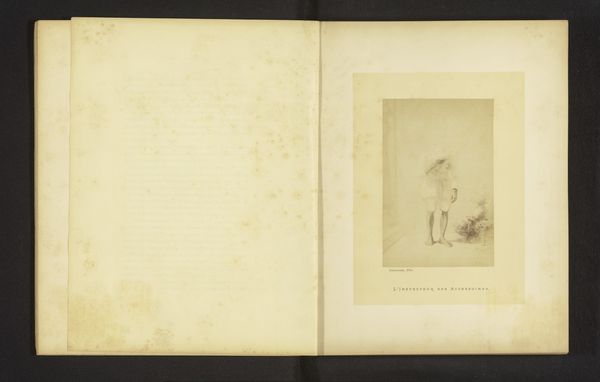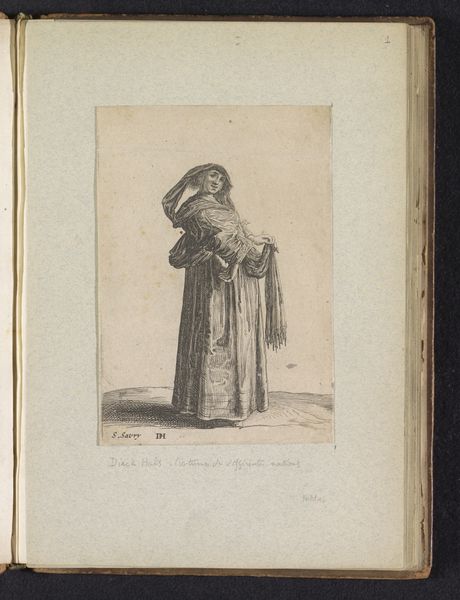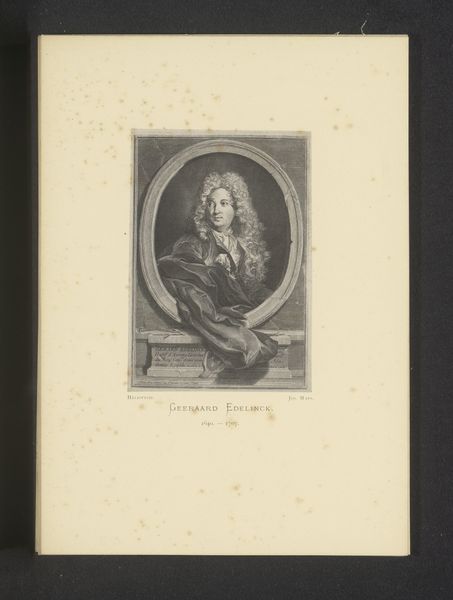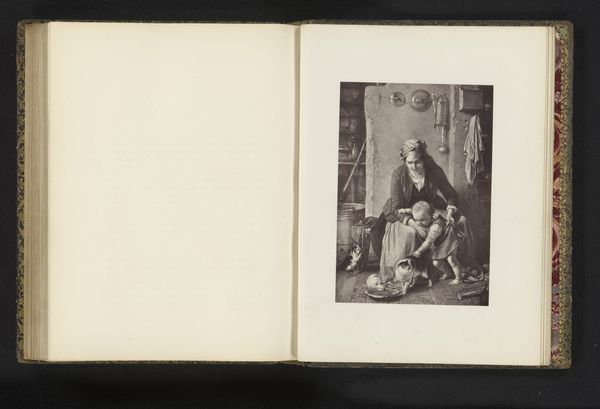
lithograph, print, etching
#
portrait
#
dutch-golden-age
#
lithograph
# print
#
etching
Dimensions: height 180 mm, width 134 mm
Copyright: Rijks Museum: Open Domain
This reproduction of a self-portrait etching was made by an anonymous artist, using a technique known as heliogravure. Unlike traditional etching, which relies on manual engraving, heliogravure employs a photographic process to transfer an image onto a metal plate, typically copper. The plate is coated with a light-sensitive gelatin tissue, exposed to a film positive, and then etched in varying depths to create tonal variations. This meticulous process allows for a high degree of detail and subtle gradations of tone, replicating the nuanced lines and textures of the original etching. Heliogravure emerged in the 19th century, bridging the gap between photography and traditional printmaking. Its reliance on both mechanical and chemical processes reflects the industrial advancements of the time. While it democratized image reproduction, it also involved specialized labor and materials, highlighting the complexities of art production within a burgeoning capitalist economy. This piece reminds us that even reproductions carry their own unique history of making.
Comments
No comments
Be the first to comment and join the conversation on the ultimate creative platform.
